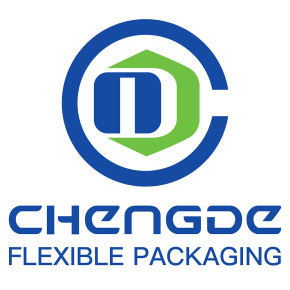Revolutionizing Sustainability: The Rise of Advanced Biodegradable Flexible Packaging
Release time:
2025-09-15
In recent years, the packaging industry has witnessed a transformative shift towards sustainable solutions. One of the most promising advancements is the emergence of advanced biodegradable flexible packaging. This innovative type of packaging is designed to decompose naturally in various environmental conditions, thereby significantly reducing the long-term impact on our planet. Advanced biodegra
In recent years, the packaging industry has witnessed a transformative shift towards sustainable solutions. One of the most promising advancements is the emergence of advanced biodegradable flexible packaging. This innovative type of packaging is designed to decompose naturally in various environmental conditions, thereby significantly reducing the long-term impact on our planet.
Advanced biodegradable flexible packaging is created from materials that can break down into natural substances when exposed to the right environmental conditions, such as moisture and microorganisms. Unlike conventional plastic, which can take hundreds of years to decompose, these advanced materials can break down within months, depending on the conditions they’re exposed to. This rapid biodegradation is crucial for reducing landfill waste and minimizing environmental pollution.
One of the critical components of advanced biodegradable packaging is the use of biopolymers. These materials are derived from renewable resources, including plant-based materials, which make them not only biodegradable but also more sustainable than traditional petroleum-based plastics. The production of biopolymers often has a lower carbon footprint, contributing to a more sustainable lifecycle for the packaging products.
Another significant advantage of advanced biodegradable flexible packaging is its versatility. It can be used in various applications, including food packaging, personal care products, and e-commerce shipping solutions. Its flexible nature allows for a range of designs and functionalities, ensuring that it meets the diverse needs of consumers while promoting environmental responsibility.
Furthermore, the shift towards these packaging materials is being driven by consumer awareness and demand for sustainable practices. Today’s consumers are more informed about environmental issues and are increasingly opting for products that align with their values. Companies that invest in advanced biodegradable flexible packaging not only appeal to this growing demographic but also gain a competitive edge in the marketplace.
Moreover, advancements in technology have allowed manufacturers to produce biodegradable packaging that maintains the same quality and durability as traditional options. This means that businesses do not have to compromise on performance or safety, making the transition to sustainable packaging solutions more accessible.
In conclusion, advanced biodegradable flexible packaging represents a significant step forward in the quest for sustainable solutions within the packaging industry. By leveraging innovative materials and technologies, businesses can reduce their environmental impact while catering to the demands of eco-conscious consumers. As the industry continues to evolve, the adoption of these advanced solutions will play a pivotal role in shaping a more sustainable future for packaging and the planet.
Advanced biodegradable flexible packaging is created from materials that can break down into natural substances when exposed to the right environmental conditions, such as moisture and microorganisms. Unlike conventional plastic, which can take hundreds of years to decompose, these advanced materials can break down within months, depending on the conditions they’re exposed to. This rapid biodegradation is crucial for reducing landfill waste and minimizing environmental pollution.
One of the critical components of advanced biodegradable packaging is the use of biopolymers. These materials are derived from renewable resources, including plant-based materials, which make them not only biodegradable but also more sustainable than traditional petroleum-based plastics. The production of biopolymers often has a lower carbon footprint, contributing to a more sustainable lifecycle for the packaging products.
Another significant advantage of advanced biodegradable flexible packaging is its versatility. It can be used in various applications, including food packaging, personal care products, and e-commerce shipping solutions. Its flexible nature allows for a range of designs and functionalities, ensuring that it meets the diverse needs of consumers while promoting environmental responsibility.
Furthermore, the shift towards these packaging materials is being driven by consumer awareness and demand for sustainable practices. Today’s consumers are more informed about environmental issues and are increasingly opting for products that align with their values. Companies that invest in advanced biodegradable flexible packaging not only appeal to this growing demographic but also gain a competitive edge in the marketplace.
Moreover, advancements in technology have allowed manufacturers to produce biodegradable packaging that maintains the same quality and durability as traditional options. This means that businesses do not have to compromise on performance or safety, making the transition to sustainable packaging solutions more accessible.
In conclusion, advanced biodegradable flexible packaging represents a significant step forward in the quest for sustainable solutions within the packaging industry. By leveraging innovative materials and technologies, businesses can reduce their environmental impact while catering to the demands of eco-conscious consumers. As the industry continues to evolve, the adoption of these advanced solutions will play a pivotal role in shaping a more sustainable future for packaging and the planet.
Related News

